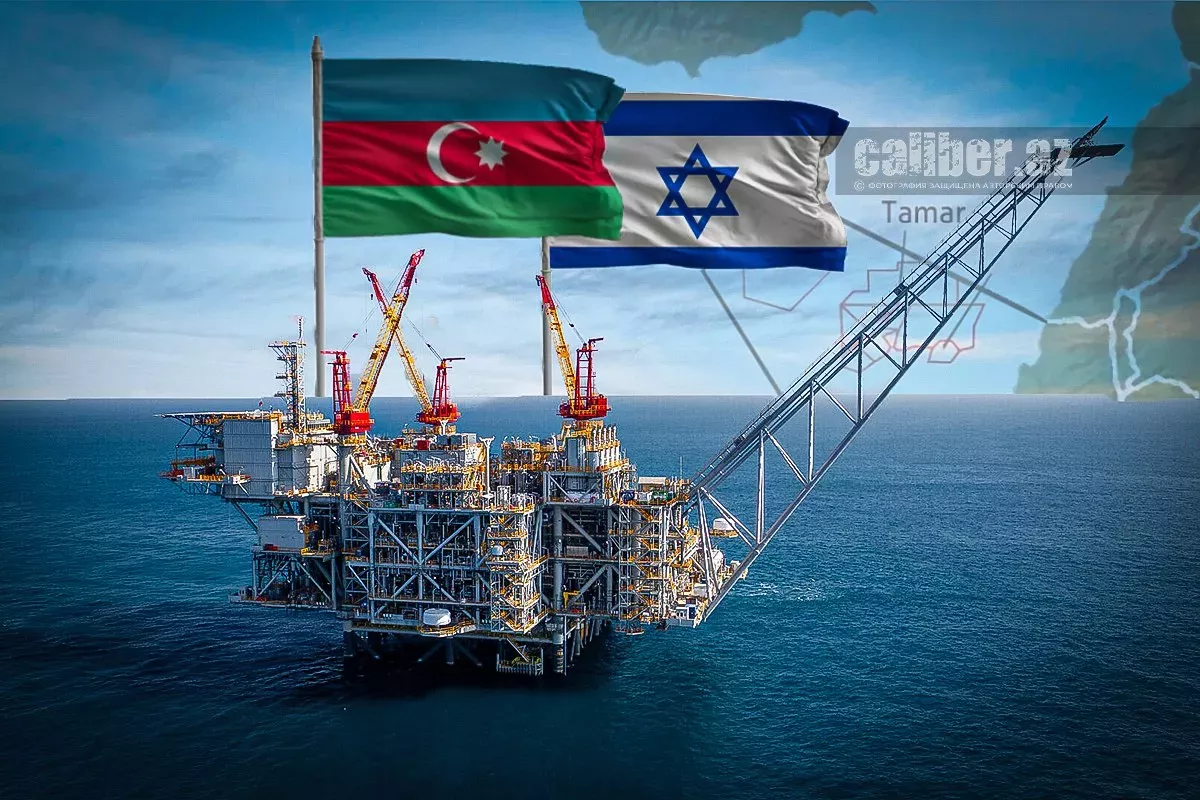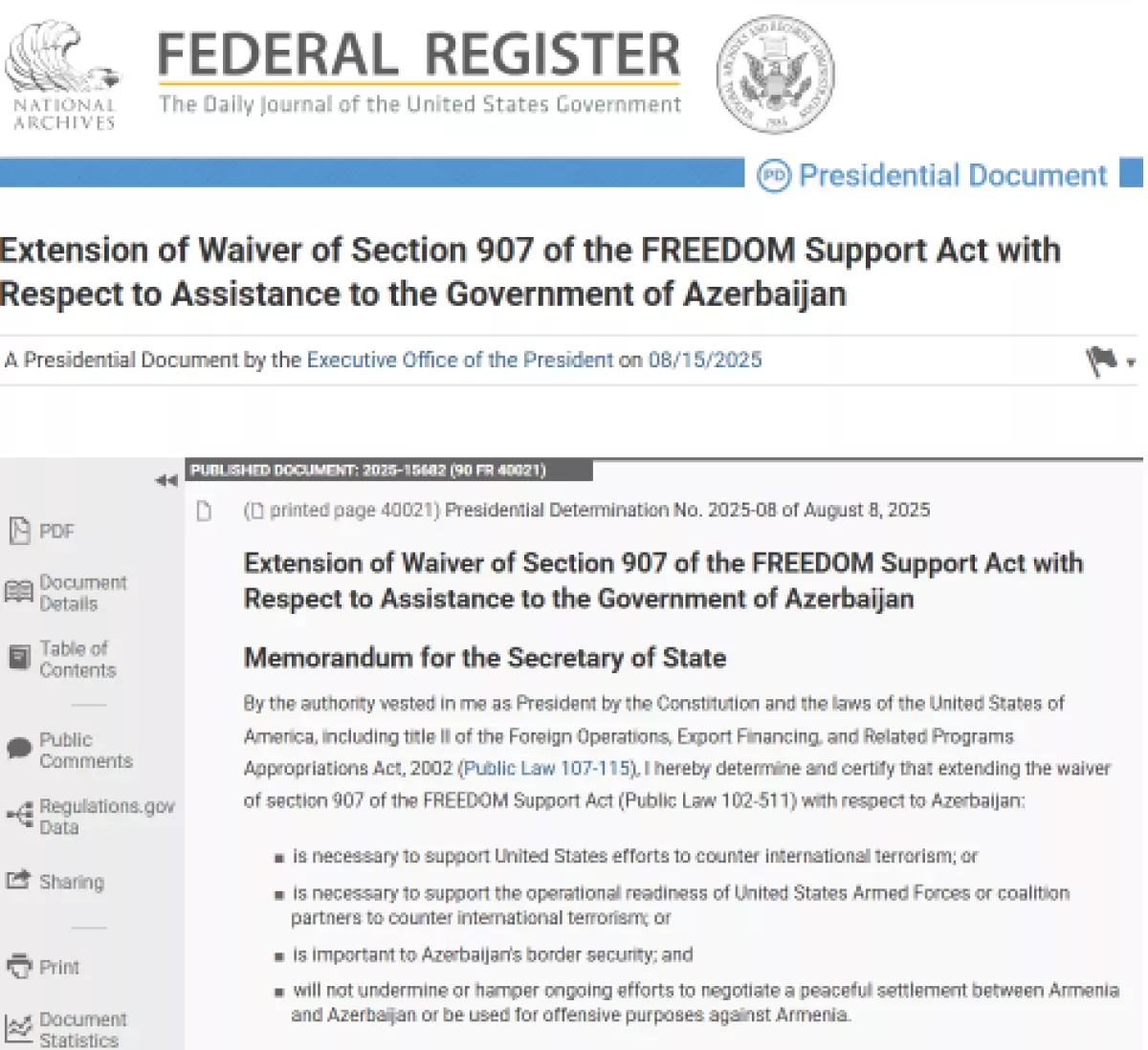Forbes: Anti-Azerbaijani amendment 907 has outlived its usefulness
The American magazine Forbes has published an article by Wesley Alexander Hill on Azerbaijani-American relations. Caliber.Az presents its readers with an adapted version of the piece.
In the ever-shifting, fractious geopolitical landscape of Eurasia and the Caucasus, the announcement in August of the American-brokered deal between Armenia and Azerbaijan, was a true, positive breakthrough. After the chaos of the collapse of the Soviet Union, these two countries fought a bitter series of wars over Karabakh’s territory. Previously, Russian and Iranian geopolitical machinations in this strategic area kept tensions high while disrupting trade and economic activity.
Even after the 2020 war in which Azerbaijan won a decisive military victory, questions remained. Half a decade of negotiation later, with peace at hand and most of the challenging diplomatic work done, an obstacle lingers that can interfere with America’s ability to capitalise on the new treaty and the Trump Route for International Peace and Prosperity. Also in August, President Trump suspended the application of Section 907 of the 1992 Freedom Support Act, which prevents direct U.S. aid to Azerbaijan. The time has come for the outdated provision to be permanently retired to allow the promise of the TRIPP to be fully realized.
The Caucasus is key for transport and trade
The Caucasus, which has linked the global North and South, and the East and West since time immemorial, focuses the geopolitical aspirations of many of the world’s great powers, including Russia, China, and the United States. Türkiye and Iran are also intertwined. Where great powers jostle for influence and energy, and security remains a paramount concern, the United States cannot afford to sleepwalk past the strategic value of Azerbaijan.

A small but strategically located nation, nestled at the eastern shores of the Caucasus facing the Caspian Sea, the largest salt lake in the world, Azerbaijan serves as the gateway from the West to energy-rich Central Asia via the Middle Corridor, a web of transportation routes connecting Eurasia with Europe and the Middle East. It has emerged as a vehemently independent player in the region — simultaneously resisting Russian and Iranian pressure, maintaining a pro-Western outlook, and serving as a vital energy artery to Europe.
Yet, U.S. foreign policy toward Baku remains outdated, handcuffed by Section 907 of the 1992 Freedom Support Act. Initially created to pressure Azerbaijan over its conflict with Armenia, Section 907 has outlived its usefulness. Today, it actively hampers America’s strategic, economic, and diplomatic interests in the South Caucasus and beyond. It’s time for Washington to recognise that Azerbaijan is not just a regional player; it’s a partner that can collaborate with American businesses and help the U.S. seize strategic opportunities.
Few nations are better positioned to balance both Russia and Iran than Azerbaijan. Azerbaijan is viewed with deep suspicion by theocracy in Tehran, not just for geopolitical reasons, but because of what Azerbaijan represents. This is a secular, Muslim-majority country—the ideological opposite of the Iranian regime, which has reportedly executed at least 1,000 imprisoned Iranians in 2025 alone. Baku’s religious tolerance and willingness to cooperate with Israel and the West are an active threat to Iran. It is worth noting that Azerbaijan granted women the right to vote before the United States did.
More importantly, up to 25 million ethnic Azerbaijanis reside in Northwestern Iran, many of whom consider Baku a cultural and political reference point and a model. For Tehran, it’s a long-term threat to internal cohesion.
Russia, for its part, has long seen the South Caucasus as its “near abroad,” a sphere of former imperial influence, but Baku has proven stubbornly independent. Moscow’s historical support for Armenia in the Karabakh conflict poisoned its relationship with Azerbaijan. Most recently, in incidents further straining relations, Russia shot down an Azerbaijani civilian aircraft liner and then refused to take responsibility for the deaths, dozens of Azerbaijanis in Russia were arrested, and two of them died in police custody after being tortured. The Kremlin failed to play the role of neutral broker or friendly neighbour, and Baku has not forgotten it.
Despite being surrounded by hostile powers, Azerbaijan has quietly pursued a foreign policy aligned with American interests. For years, Azerbaijan has worked closely with Israel on defence, energy, and agriculture. Azerbaijan covers a significant part of Israeli oil imports. The two countries continue to deepen defence ties.

More recently, Azerbaijan expressed its openness to supporting the Abraham Accords, a U.S.-led initiative aimed at normalising relations between Israel and the Muslim world. This has symbolic significance. In a region where symbolism can be as powerful as military force, Azerbaijan's quiet diplomacy should not go unnoticed. From a practical standpoint, expanding the Abraham Accords could provide a broader foundation for universal peace in the region.
Azerbaijan: An energy nexus
Energy is the driving force behind the West's engagement with Azerbaijan. The war in Ukraine has exposed Europe's dangerous dependence on Russian energy resources, especially gas. As the EU seeks to diversify its sources, Azerbaijan stands out as a producer and transit country. The Southern Gas Corridor delivers Caspian gas from Azerbaijan through Georgia and Turkey to Southern Europe, bypassing Russia and Iran.
What’s more, Azerbaijan serves as a vital channel for transporting energy resources and goods from Central Asia. Kazakh oil is increasingly being transported through Azerbaijan's infrastructure to Western markets. This East-West axis, known as the Middle Corridor, unlocks Central Asia's energy potential without the need for transit through Russia or Iran. Azerbaijan's resources and transit capabilities strengthen the energy security of US allies while contributing to the West's broader goal of limiting Moscow and Tehran's influence on global markets.
Those who move forward: U.S. vs China
Those who defend the 907th amendment today do so because of a poor understanding of current regional dynamics. In fact, Azerbaijan is not an aggressor in the region. It has offered peace and trade corridors with Armenia, and cooperates with both the US and Israel. Amendment 907 not only insults a new ally, but also harms US interests.

There is also a harsh geopolitical reality: if the US does not participate, China will. Beijing already has a presence in Azerbaijan through its Belt and Road Initiative, financing infrastructure and promoting trade ties. America's indecision in selling expensive military equipment forced Azerbaijan to turn to Chinese and Pakistani aircraft suppliers in May.
Repealing Amendment 907 does not mean endorsing all of Azerbaijan's decisions. It is about recognising that American diplomacy must take US interests into account. Baku cooperates with some of Washington's closest allies, supports the diversification of Europe's energy supply, and plays a stabilising role in a turbulent region. If the US cannot reward this level of cooperation by repealing one amendment to ensure trade expansion, we should not be surprised if other allies begin to doubt America's reliability.








